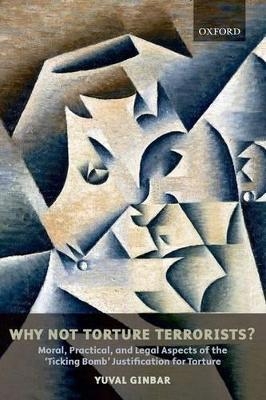
Why Not Torture Terrorists?
Moral, Practical, and Legal Aspects of the 'Ticking Bomb' Justification for Torture
Seiten
2010
Oxford University Press (Verlag)
978-0-19-957123-9 (ISBN)
Oxford University Press (Verlag)
978-0-19-957123-9 (ISBN)
This book addresses a dilemma at the heart of counter-terrorism: Is it ever justifiable to torture terrorists when innocent lives are at stake? The book analyses the moral arguments and presents a passionate defence of prohibition. It also examines current State practice and the models of legalising torture suggested in Israel and the US.
This book addresses a dilemma at the heart of counter-terrorist policy: is it ever justifiable to torture terrorists in order to save the lives of others, the so-called 'ticking bomb' scenario?
The book opens with an analysis of the pure moral argument from the standpoint of the individual as torturer. It then looks at the issues that arise once a state has decided to sanction torture in certain situations: how to establish factually that the situation is urgent, deciding who to torture, training people to carry out torture, and the efficacy of torture as a means of gathering information. The final part examines attempts to operate legal systems which tolerate torture; how they relate to the criminal law notion of necessity and to international human rights norms.
After examining the utilitarian arguments for torture, and the impact on a society of permitting torture, the author presents a powerful argument for maintaining the absolute legal prohibition.
This book addresses a dilemma at the heart of counter-terrorist policy: is it ever justifiable to torture terrorists in order to save the lives of others, the so-called 'ticking bomb' scenario?
The book opens with an analysis of the pure moral argument from the standpoint of the individual as torturer. It then looks at the issues that arise once a state has decided to sanction torture in certain situations: how to establish factually that the situation is urgent, deciding who to torture, training people to carry out torture, and the efficacy of torture as a means of gathering information. The final part examines attempts to operate legal systems which tolerate torture; how they relate to the criminal law notion of necessity and to international human rights norms.
After examining the utilitarian arguments for torture, and the impact on a society of permitting torture, the author presents a powerful argument for maintaining the absolute legal prohibition.
Yuval Ginbar serves as a legal adviser to Amnesty International and a senior adviser to the Public Committee Against Torture in Israel.
PART I: PRIVATE MORALITY: IS IT MORALLY JUSTIFIABLE FOR AN INDIVIDUAL TO TORTURE A TERRORIST IN ORDER TO SAVE MANY INNOCENT LIVES?; PART II: PUBLIC, PRACTICAL MORALITY: IS IT MORALLY JUSTIFIABLE FOR A STATE TO TORTURE IN ORDER TO SAVE MANY INNOCENT LIVES?; PART III: LEGALISING TORTURE 1 - FOUR MODELS; PART IV: LEGALISING TORTURE 2 - THREE ISSUES; PART V: CONCLUSIONS
| Erscheint lt. Verlag | 25.2.2010 |
|---|---|
| Reihe/Serie | Oxford Monographs in International Law |
| Verlagsort | Oxford |
| Sprache | englisch |
| Maße | 155 x 234 mm |
| Gewicht | 713 g |
| Themenwelt | Recht / Steuern ► EU / Internationales Recht |
| Recht / Steuern ► Öffentliches Recht ► Völkerrecht | |
| Sozialwissenschaften ► Politik / Verwaltung | |
| ISBN-10 | 0-19-957123-6 / 0199571236 |
| ISBN-13 | 978-0-19-957123-9 / 9780199571239 |
| Zustand | Neuware |
| Haben Sie eine Frage zum Produkt? |
Mehr entdecken
aus dem Bereich
aus dem Bereich


